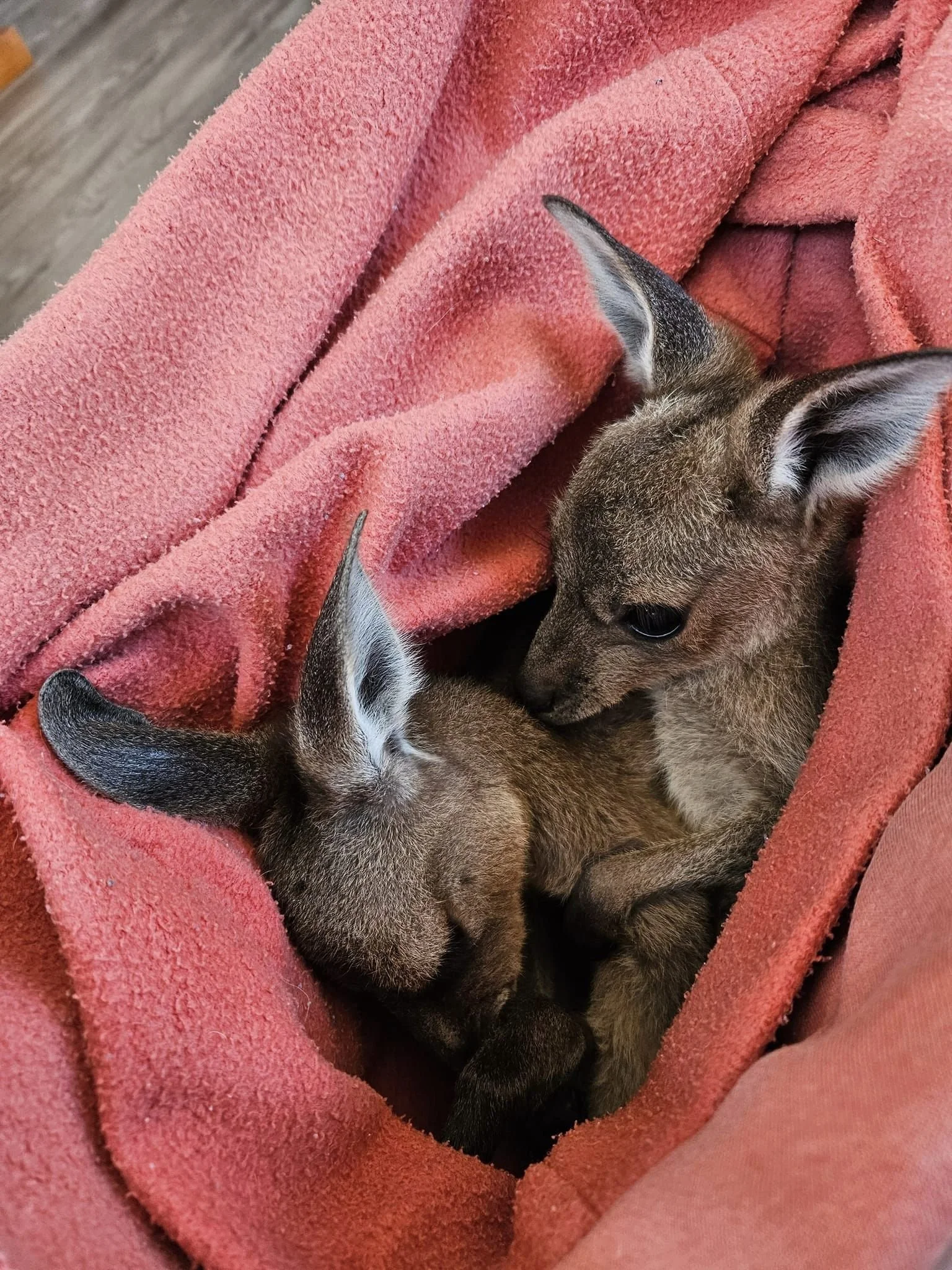When did it become OK?
When did it become OK to decide that a dog or cat’s life is more important than a kangaroo’s?
When did it become acceptable to mass slaughter one of our most iconic native animals—gentle, social, intelligent beings—just to feed our pets? To grind their bodies into pellets and call it “sustainable protein,” while we cradle our dogs in blankets and speak of love?
How would we feel if our dogs were killed to feed lions and tigers in foreign zoos? If their lives were reduced to a commodity—harvested, packaged, and shipped with a label that reads “ethical”?
When did it become OK to deliberately shoot a mother kangaroo with a baby in her pouch because her meat is sweeter? To leave the joey orphaned, terrified, and alone—if it survives at all. To call this “humane,” as if language could soften the brutality.
When did it become OK to take that orphaned joey home—not to care for it, but to entertain the kids or feed it to the dogs? To feed it inappropriate food, keep it in unsafe conditions, and treat it like a novelty because it’s “cute”? When did it become OK to ignore its complex needs, its trauma, its biology—until the novelty wears off and the joey is at death’s door? To then hand it over to a wildlife carer, broken and barely breathing, and expect them to pick up the pieces. To expect them to pay the vet bills, carry the emotional toll, and somehow make it right.
When did it become OK to treat wildlife like toys, like props, like disposable lessons in temporary empathy?
When did it become OK to control-burn vast landscapes and trap kangaroos in fire zones—forcing them to flee in panic, often toward fences, roads, or bullets? When did it become OK to ignore the wisdom of Aboriginal ancestors who burned with purpose and care—creating mosaic landscapes that guided grazing animals toward food, shelter, and safety? Burning that respected movement, life, and regeneration—not destruction for convenience.
When did it become OK to put up fences and roads that fracture ancient pathways, then call kangaroos stupid because they panic and don’t understand? To blame them for collisions, for confusion, for trying to escape what we’ve built without them in mind. As if intelligence is measured by how well a wild animal navigates human infrastructure.
When did it become OK to ignore the science that tells us kangaroos are not overpopulated, not pests, not threats—but vital to the ecosystems they’ve shaped for millennia?
When did it become OK to silence the carers, the vets, the ecologists, the First Nations voices who speak of connection, of stewardship, of respect?
When did it become OK to teach our children that some lives matter more than others—based not on sentience or suffering, but on convenience?
It is not OK.
It has never been OK.
And at Amaris, we refuse to pretend otherwise. We stand with the kangaroo. With every orphaned joey we cradle. With every mother we mourn. With every volunteer who shows up, heartbroken but determined. With every community member who dares to ask hard questions.
Because compassion should not be selective. And justice should not be negotiable.
These two little joeys (Milo & Lotus) lost their mothers—deliberately shot for their “sweet meat.” Thankfully, they were handed over immediately and are now safe in care, but their story is a heartbreaking reminder of what we’ve normalised.

